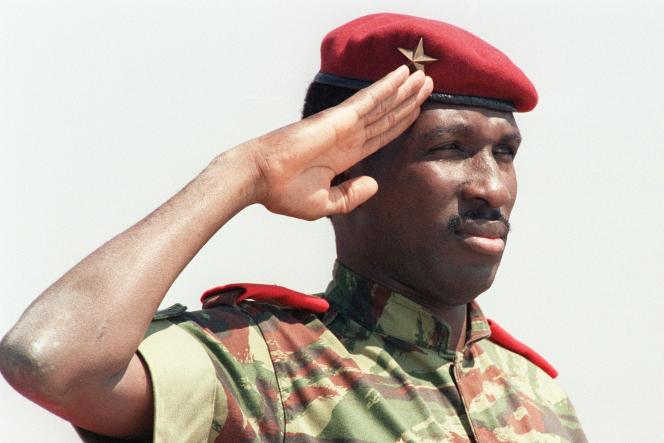This article is a compilation and reflection on four unique quotes that were mentioned by the renowned pan-African leader and revolutionary, Thomas Sankara.

#1. Presiding over a country that was regarded as one of the poorest countries of the world at that time, Sankara could not afford to plunge his country into further penury by collecting baseless loans (or aid) from the west that they could not afford to pay back, hence, putting them at the perpetual mercy of western countries. It was not just about receiving money, but the soft power that the west would wield in controlling his country. He rejected every form of aid. A stark example of this is the construction of the rail track that connects Ouagadougou to the manganese mines in the north which was built by Sankara and the Burkinabes. It was an opportunity for the Burkinabes to roll up their sleeves and work to place the rails themselves with no foreign influence. Sankara was convinced that the country’s own resources had to be exploited as a priority to avoid depending on the west and essentially to give Burkina Faso more autonomy. He advised other African leaders to also do the same but are they doing the same today? Aid, no matter how enticing it is cannot uplift Africa because we will continuously be at the mercy of western countries (and the new power rising in the east).

#2. Full quote: “You cannot carry out fundamental change without a certain amount of madness. In this case, it comes from nonconformity, the courage to turn your back on the old formulas, the courage to invent the future. It took the madmen of yesterday for us to be able to act with extreme clarity today. I want to be one of those madmen… We must dare to invent the future.” – Thomas Sankara, 1985.
Sankara made that statement at a time when he was challenging the norm of his days: the norm of perpetual dependence of African states on western countries; the norm of constant subservience and subjugation of women; the norm of economic retrogression, war, famine, and malnutrition; the norm of environmental degradation. Sankara stood out in the midst of the African leaders of that time because he dared to speak out and challenge the “status quo.” As young people, we need to think about what ways we can “dare” to invent the future today, to create the future that we all hope to see.
I wrote a blog piece on this some years back. Check it out here.

#3. Many African leaders at this time did not have gender equality and women’s rights at the forefront of their policies. But yet again, Sankara stood out. Not because putting women at the forefront was charity work or that he should receive a gold medal for that. The reason why this is important to highlight is because of the timing: there were leaders on the continent who had not fully grasped the problems of gender equality; they were focused on other issues. But Sankara was a visionary leader who thought ahead of his comrades. He knew that social development means nothing when inequality, and injustice against women prevail. And he made efforts to correct this by empowering women to take part in political activities and for them to be able to join the military if they wanted.

#4. Today, 21st December, Sankara would have turned 72 years old but in 1987, he was betrayed by a very close friend and was eventually assassinated, with the help of the French government; but his legacy still lives on. This “friend” went on to become president and he reversed most of Sankara’s policies (most notably, plunging the country into further indebtedness by collecting loans from western countries). He governed the country for 27 years until he was forcefully removed from office in 2014 after nationwide protests. The court hearing on Sankara’s death started a few months ago and is currently ongoing.
The purpose of this blog was to shed light on who Sankara was and the legacy that he leaves behind since his death. Hopefully, you are inspired one way or another as you press on your journey of impacting your world and leaving a mark on the earth. Ciao!
PS: These quotes and reflections were first featured in my #SankaraSaid series on my social media handles between December 18 and 21.

insightful